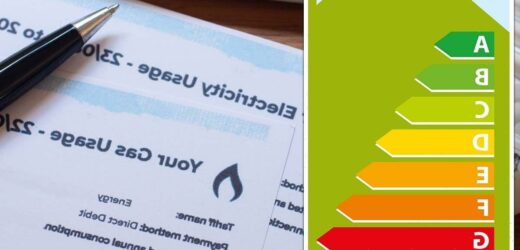Liz Truss introduces 'energy price guarantee' to tackle cost crisis
We use your sign-up to provide content in ways you’ve consented to and to improve our understanding of you. This may include adverts from us and 3rd parties based on our understanding. You can unsubscribe at any time. More info
Last week, Prime Minister Liz Truss recently announced her energy price guarantee, which would freeze bills for households at £2,500 a year from October. While this figure is far lower than the £3,549 that Ofgem had announced, this is still a significant increase from the current price cap of £1,971 a year, which was introduced in April. Experts and charities have repeatedly warned that the exorbitant price increases threaten to put millions of households in the UK in a state of fuel poverty, where energy costs eat up a significant portion of their income.
Based on Ofgem’s figures for the October price cap, new research has found that millions of households could save about £748 this winter, but by increasing energy efficiency in their homes.
Kingfisher found that households living in inefficient homes, which have an EPC rating of D or below) will face an average energy bill increase of £1,730 a year in October, significantly higher than the £982 per year faced by those living in more efficient properties of EPC rating C or above.
EPC band C is the targetted rating that the Government has said that it is “committed to upgrading” as many homes as possible by 2030, while the average home in the UK lies in band D.
According to a recent report by the Committee on Climate Change, 19 million of the 29 million homes in the UK lie below the C rating, meaning they could pay £748 more per year.
The research, undertaken in partnership with economics consultancy Cebr, also uncovered a significant regional divide when it came to household energy efficiency.
Households in Wales, Yorkshire and the Humber, and the West Midlands, which are three of the regions with the highest poverty rates, are set to be hardest hit as they have the lowest energy efficiency, while Londoners have the most energy-efficient housing, saving hundreds on bills.
A recent survey of 2,000 UK adults who own or rent property found that as energy bills have soared, 60 percent said that they are now more interested in energy efficiency than they had been previously due to recent rising bills.
However, only about half are planning to make efficiency improvements this year, with the 34 percent citing upfront costs of installation as the biggest reason for not doing so.
Thierry Garnier, Kingfisher CEO, commented: “The UK’s housing stock is among the least energy-efficient in Europe, with UK homes losing heat up to three times faster than European neighbours.
“With a nearly £750 bills gap between the most and least energy efficient homes, and homes responsible for around 20 percent of the UK’s emissions, tackling this challenge has never been more important.
“Based on our experience working with governments in eight countries across Europe, we are proposing five practical policies that we believe would make a difference – helping households to cut both their energy bills and their emissions.”
These suggestions include slashing VAT on energy efficiency products, and introducing a new grant funding scheme for those on lower incomes to fund the installation of energy efficiency measures similar to the MaPrimeRénov scheme in France.
DON’T MISS:
EU green energy companies face eyewatering £120bn windfall tax [INSIGHT]
Truss energy freeze plan to hand thousands more to wealthy Britons [REVEAL]
Covid mystery as report claims virus may have leaked from US lab [REPORT]
Jess Ralston, Senior Analyst at the Energy and Climate Institute noted that there are “stark differences between highly insulated and poorly insulated homes show the real-world impacts insulation could have in time to dent exorbitant bills this winter.
“The most vulnerable, such as the elderly, tend to live in colder homes and these are the groups that are being placed at risk by inaction from the government on energy efficiency.
“The ECO insulation scheme has worked well and is knocking at least £600 a year off the bills of fuel-poor households, but Government is non-committal on doing more.
“We have to consider security of supply too, but more UK gas won’t come online anytime soon, so insulation is our best bet to shield us from the whims of Putin and lower bills during this cost of living crisis and each year after.”
It is important to note that the ECO scheme is paid for green levies on household bills, which Prime Minister Liz Truss has vowed to scrap.
Source: Read Full Article






